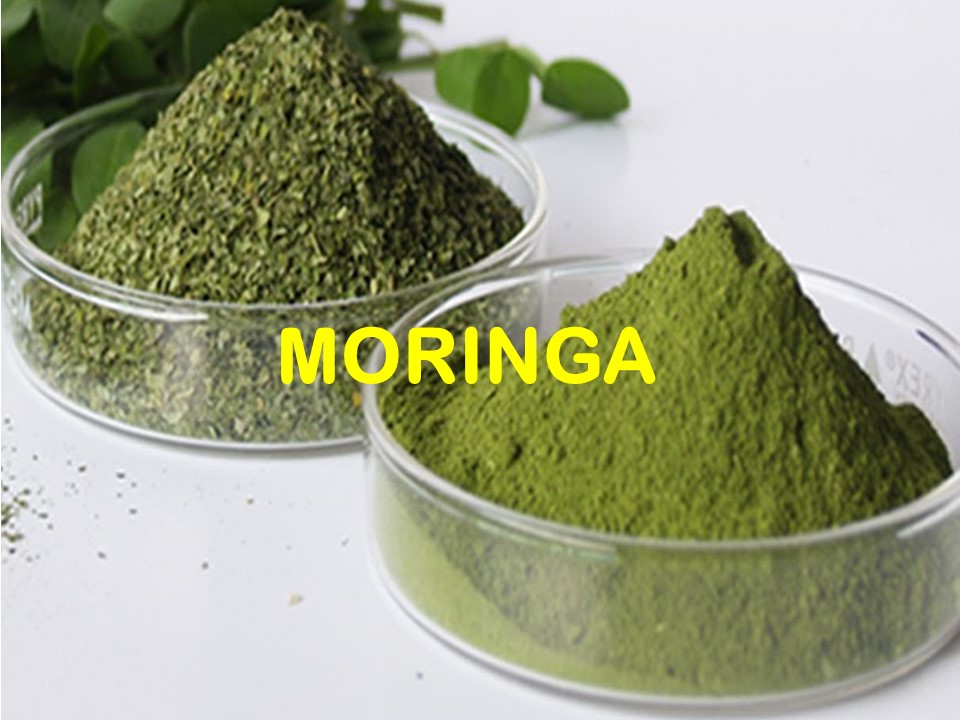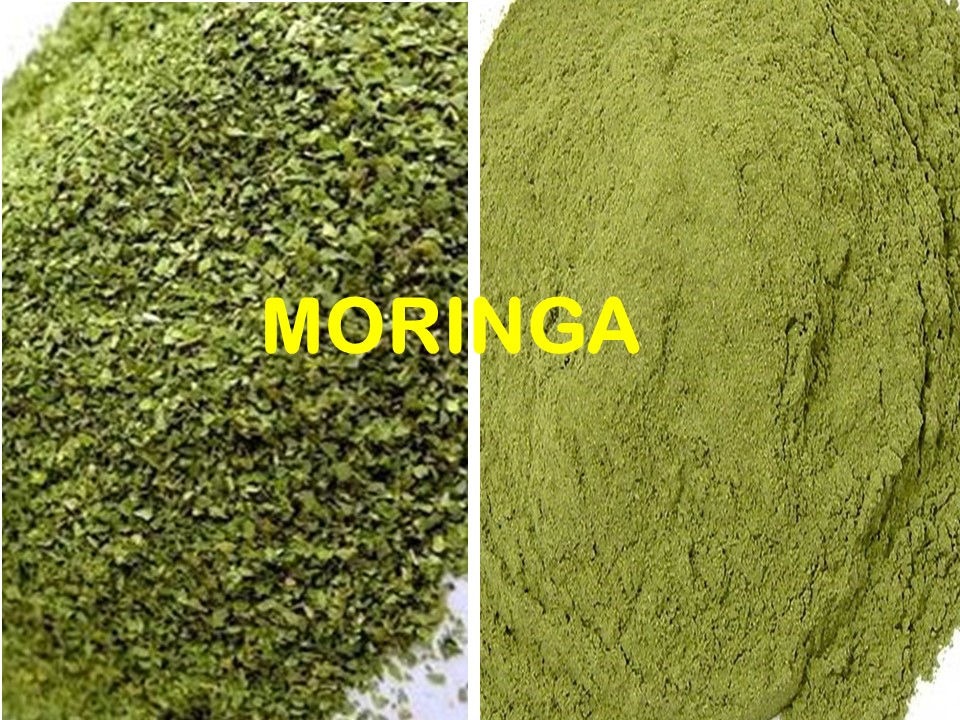MORINGA


Moringa oleifera is the most widely cultivated species of the genus moringa , which is the only genus in the family Moringaceae. English common names include: moringa, drumstick tree (from the appearance of the long, slender, triangular seed-pods), horseradish tree (from the taste of the roots, which resembles horseradish ), ben oil tree, or benz oil tree (from the oil which is derived from the seeds). It is a fast-growing, drought -resistant tree, native to the tropical and widely cultivated in tropical and subtropical areas where its young seed pods and leaves are used as vegetables. It can also be used for water purification and hand washing, and is sometimes used in herbal medicine. Flowering begins within the first six months after planting. In seasonally cool regions, flowering only occurs once a year between April and June. In more constant seasonal temperatures and with constant rainfall, flowering can happen twice or even all year-round.
NUTRIENTS :
The results of nutritional analysis can be seen that Moringa leaves have excellent potential to complement the nutritional needs in the body. By eating the leaves kelor the balance of nutrients in the body will be fulfilled so that people who eat kelor leaf will be helped to increase energy and endurance of the body. In addition, Moringa leaf is also efficacious to overcome various complaints caused by lack of vitamins and minerals such as vitamin A deficiency (impaired vision), lack of Choline (fat deposition in the liver), lack of vitamin B1 (beriberi), vitamin B2 deficiency (skin Dry and chapped), lack of vitamin B3 (dermatitis), vitamin C deficiency (gum bleeding), lack of calcium (osteoporosis), iron deficiency (anemia), protein deficiency (chapped hair and growth disorders in children). Many parts of moringa are edible, with regional uses varying widely : Immature seed pods, called “drumsticks” , Leaves , Mature seeds , Oil pressed from seeds ,Flowers.
HEALTH & BEAUTY BENEFITS :
Moringa has become popular as a natural leaf powder supplement, although the pods, roots, bark, flowers, seeds, and fruits are also edible.
1. It’s nutrient-packed. : Moringa is a rich source of vitamins, minerals, and amino acids. It contains significant amounts of vitamin A, C, and E; calcium; potassium; and protein.
2. It fights free radicals. : Antioxidants fight free radicals, molecules that cause oxidative stress, cell damage, and inflammation.
3. It fights inflammation. : Inflammation can lead to chronic diseases like diabetes, respiratory problems, cardiovascular disease, arthritis, and obesity.
4. It helps reduce some diabetes symptoms. : Moringa leaf powder has been effective at reducing lipid and glucose levels and regulating oxidative stress in diabetic patients, which means it lowers blood sugar and cholesterol and improves protection against cell damage.
5. It protects the cardiovascular system. : Moringa leaf powder has heart-healthy benefits, particularly in blood lipid control ,the prevention of plaque formation in the arteries, and reduced cholesterol levels.
6. It supports brain health. : Moringa supports brain health and cognitive function because of its antioxidant and neuro-enhancer activities as a treatment for Alzheimer’s disease.
7. It protects the liver. : Moringa contains high concentrations of polyphenols in its leaves and flowers that protect the liver against oxidation, toxicity, and damage.
8. It contains antimicrobial and antibacterial properties. : Moringa has antibacterial and anti-fungal properties that fight infections. It’s been effective against types of fungi that cause infections on skin and strains of bacteria responsible for blood and urinary tract infections and digestive problems.
9. It enhances wound healing. : Moringa has blood-clotting properties in its leaves, roots, and seeds that benefit wound healing and can reduce clotting time, which means it reduces the time it takes for scratches, cuts, or wounds to stop bleeding.
HOW TO USE IT :
You can add moringa powder to your smoothie or drink it as a tea. The leaf powder was deemed safe in human studies, even in larger doses than normal. The powder has a mild flavor, so it makes for a light moringa tea with a slightly earthy taste. But you might want to stay clear of seed extract consumption, as they have shown a level of toxicity in immune cells. Moringa can have laxative effect in large quantities, so a safe dose to introduce it into your food or diet and avoid digestive problems is ½ to 1 tea spoon per day.

